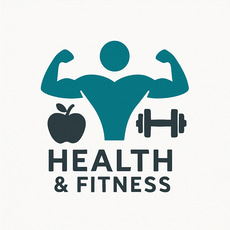Understanding Addiction: It’s More Than Just a Habit
Addiction is often misunderstood as a simple habit, but it’s a complex brain disorder that affects behavior, decision-making, and health. This blog explores the science behind addiction, common types, warning signs, and why compassion and proper treatment are essential for recovery.
SUBSTANCE ABUSE & ADDICTION
5/15/20253 min read
Understanding Addiction: It’s More Than Just a Habit
Addiction is often misunderstood. Many assume it’s simply a matter of willpower or poor choices, but science tells a different story. Addiction is a complex brain disorder that affects behavior, decision-making, and self-control—far beyond what’s commonly viewed as a “bad habit.”
In this blog, we’ll explore what addiction really is, how it develops, the science behind it, and why empathy, support, and medical treatment are essential for recovery.
What Is Addiction?
At its core, addiction is a chronic condition that involves compulsive engagement with a substance or behavior, despite harmful consequences. It affects the brain’s reward system, creating powerful cravings and altering normal functioning.
Addiction isn’t limited to drugs or alcohol—it can also involve behaviors like gambling, eating, gaming, or using the internet. The key feature is a loss of control and an inability to stop even when it’s causing damage.
The Brain and Addiction
Addiction changes how the brain functions, particularly in areas related to reward, motivation, memory, and self-control. Here’s a breakdown of what happens:
Dopamine Overload: Addictive substances or behaviors release large amounts of dopamine, the “feel-good” chemical in the brain. This floods the reward system, reinforcing the behavior.
Tolerance: Over time, the brain becomes less sensitive to dopamine. The person needs more of the substance or activity to feel the same effect.
Dependence: The brain starts to rely on the substance to function normally. Without it, withdrawal symptoms occur.
Impaired Control: The prefrontal cortex, which governs decision-making and impulse control, becomes less effective, making it harder to stop.
This neurological cycle explains why addiction isn’t just a bad habit—it’s a condition that rewires how the brain works.
Common Types of Addiction
Substance Addictions
Alcohol
Prescription medications (e.g., opioids, benzodiazepines)
Illicit drugs (e.g., heroin, cocaine, methamphetamine)
Nicotine
Behavioral Addictions
Gambling
Internet or gaming
Shopping
Food and eating disorders
Sex or pornography
All types of addiction involve similar brain mechanisms, even if the source of addiction differs.
Signs and Symptoms of Addiction
Recognizing addiction early can make a big difference. Here are some common warning signs:
Cravings or intense urges
Loss of control over use or behavior
Neglecting responsibilities or relationships
Needing more of the substance or behavior to achieve the same effect
Withdrawal symptoms when not engaging in the behavior or substance
Continued use despite harm
Not everyone will show all of these signs, and addiction can look different from person to person.
Addiction vs. Habit: What’s the Difference?
A habit is something we do regularly, often without thinking. While habits can be hard to break, they don’t usually involve the intense cravings, dependence, or neurological changes that addiction does.
For example, someone may habitually drink coffee every morning. But if skipping it doesn’t cause emotional or physical distress—or interfere with daily life—it’s likely a habit, not an addiction.
Addiction, on the other hand, involves a deeper compulsion and often continues even when it causes serious consequences.
Why People Become Addicted
Addiction doesn’t happen overnight. Multiple factors contribute to a person’s risk, including:
Genetics: Family history can increase the likelihood of addiction.
Mental Health: Conditions like anxiety, depression, or trauma often co-occur with addiction.
Environment: Stressful or unstable environments, peer pressure, or exposure to substance use can raise the risk.
Early Use: The younger someone starts using a substance, the more likely they are to develop addiction later in life.
It’s important to remember: no one chooses to become addicted. It's a complex interplay of biology, psychology, and environment.
Stigma and Misunderstanding
One of the biggest barriers to treatment is the stigma surrounding addiction. People with addiction are often judged as weak, irresponsible, or morally flawed. This misunderstanding can prevent them from seeking help or being treated with compassion.
In reality, addiction is a medical condition, not a personal failing. Like diabetes or heart disease, it requires ongoing management and support.
How Addiction Is Treated
Recovery is possible—but it often requires professional support. Effective treatment may include:
Detoxification: Safely managing withdrawal symptoms.
Counseling and Therapy: Addressing the root causes of addiction and building coping strategies (e.g., CBT, group therapy).
Medication-Assisted Treatment (MAT): Using FDA-approved medications to help manage cravings and withdrawal (e.g., methadone, buprenorphine).
Support Groups: Connecting with others in recovery (e.g., Alcoholics Anonymous, SMART Recovery).
Lifestyle Changes: Building healthy habits, routines, and support networks.
Recovery isn’t one-size-fits-all. Each person’s journey is unique and may involve setbacks, but support and persistence make a difference.
What You Can Do
Whether you’re struggling with addiction or supporting someone who is, here are a few steps to consider:
Get Educated: Understanding addiction helps break down judgment and fear.
Practice Empathy: Treat yourself or others with compassion. Recovery is hard, and shame only makes it harder.
Seek Help Early: The sooner addiction is addressed, the better the outcomes.
Encourage Treatment, Not Punishment: Support evidence-based treatment over punitive responses.
Create a Supportive Environment: Recovery thrives in environments where people feel safe, understood, and valued.
Final Thoughts
Addiction is more than a habit—it’s a chronic, often relapsing condition that changes how the brain works. It can affect anyone, regardless of background, and requires medical attention, emotional support, and time to heal.
By shifting the way we talk about and approach addiction, we can reduce stigma, open doors to treatment, and create a path to lasting recovery.
